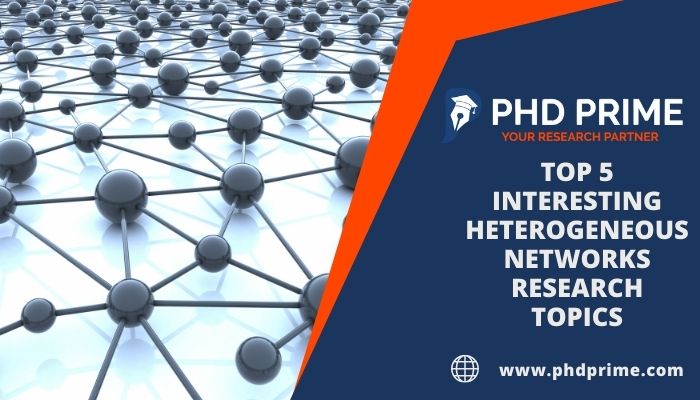Heterogeneous Networks (HetNets) interconnect the multiple wireless networks and technologies into one. These networks utilize a miscellaneous set of base stations to increase both the spectral and energy efficiency per unit area. The cellular radio concept in wide-area base station sites is intended to deliver a rational level of existed coverage. Beyond this, there are numerous Heterogeneous Networks research topics are remain available. This page showcases the significant research ideas and advanced information in Heterogeneous Networks!!!
Why HetNets?
Generally, heterogeneous is the features of different elements. HetNets contains a mix of high-power macrocells and low-power macro nodes, for example, Pico and Femtocells. Considering this, the name itself says that the devices opt with dissimilar protocols, standards, and others.
For the most part, it mainly depends on power and QoS negotiation among the offloading decision module and the wireless HetNet. For your attentiveness to current research trends, we have listed out few important innovative ideas.

Recent Research Ideas in HetNets
- Security for HetNet based Security
- Deep Learning-based Message Authentication in HetNets
- 5G HetNets Physical Layer Security
- Data Security using deep Learning in HetNets
- Authorization and Verification for HetNets Security
- Deep Learning-based Message Authentication in HetNets
- Novel Cryptographic Algorithms for Security and Privacy of HetNets
- Coding Error Correction with Deep Learning in HetNets Security
- Low Power Deep Learning Techniques for HetNets Security
- Intrusion Detection and Prevention Techniques in HetNets
- Energy-Aware Solution for HetNets Security
At this instant, the 5G offers high data rates for small cells. Nowadays, D2D & M2M are aid with the use of MTC. It acquaints to use multiple input and multiple outputs. Henceforth, it connects massive users and is achieved with high throughput. Here we have enlisted the notable information about the next generation 5G in HetNets.
Next Generation 5G based HetNets
HetNets are available in the current wireless networks in which tradeoff between data rate and fairness in resource allocation is important. For a solution to address this issue is that allow network densification for small cells deployment. Some of the important research issues in HetNets.
- Interference Management
- Security and Privacy
- 5G Network Attacks
- Networks (Pico, Micro, Femto, and Macro)
The above mentioned is all about the significant research in next-generation 5G HetNets. Let us give you the technical challenges in HetNets such as interference, that takes place in terms of cross-tier or co-tier in the network. In any event, self-interference also happens. On the other hand, the multiple accesses, the dynamic device is also issuing in it. So far, we have discussed the research impacts of HetNets. For all heterogeneous networks research topics, thesis writing is an important part that must write with proper guidelines. And now, let us take a glance over the significance of the thesis.
Thesis structure format
In addition, if you want to know add-on best heterogeneous networks research topics, then you can connect with our experienced research team. We will offer you marvelous and unique ideas in your intended research area. Before knowing to choose the research topic for your hetnet research proposal, let’s discuss the thesis writing.
- Chapter 1: Research problems and objectives define
- Explain in detail the problems and address the current research issues
- Specify the research objectives and contributions
- Organization of the thesis is described
- Fill the gaps with new research solutions
- Chapter 2: Literature with Limitations
- Survey all relevant research works
- Give the comparison between the related works
- Tabular column is given with certain criteria
- Chapter 3: Research Methods and Methodologies
- How the proposed work is worked
- Uses mathematical equations and proofs
- Give the detailed procedure for the system model
- Chapter 4: Results Discussion and Arguments
- Highlight the performance with various performance metrics
- Results are discussed with more explanations
- Give the ideas of the existing works
- Tables and Graphs are given
- Chapter 5: Conclusion and Future Enhancements
- Limitations of existing works
- Recommendations with future directions
- All research questions and solutions
If you want to know further Heterogeneous Networks Research Topics, contact us!!!!





















